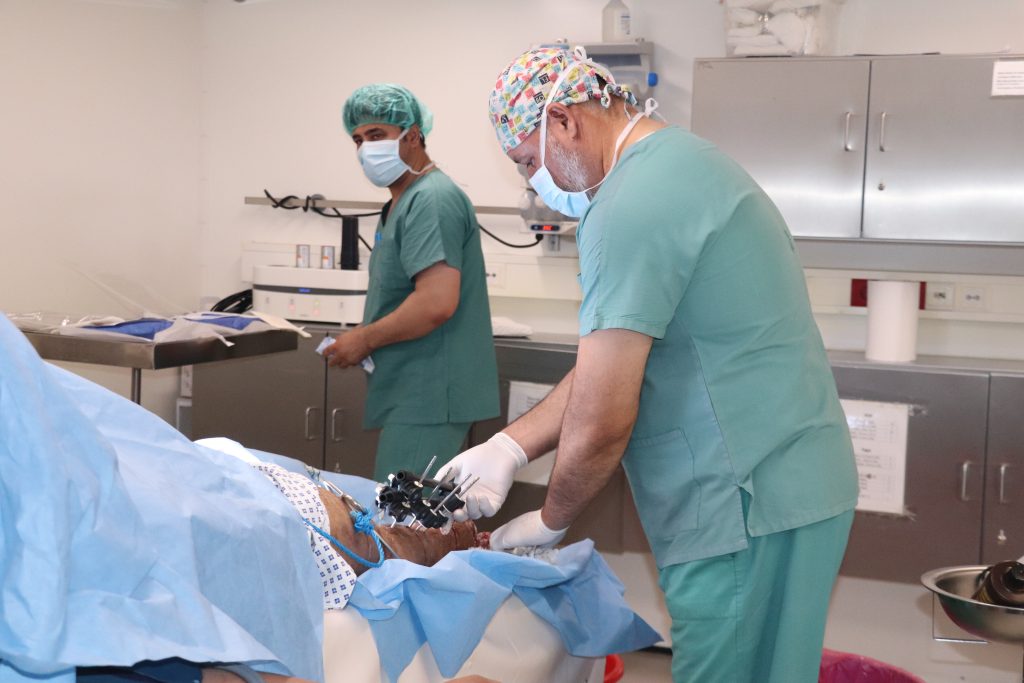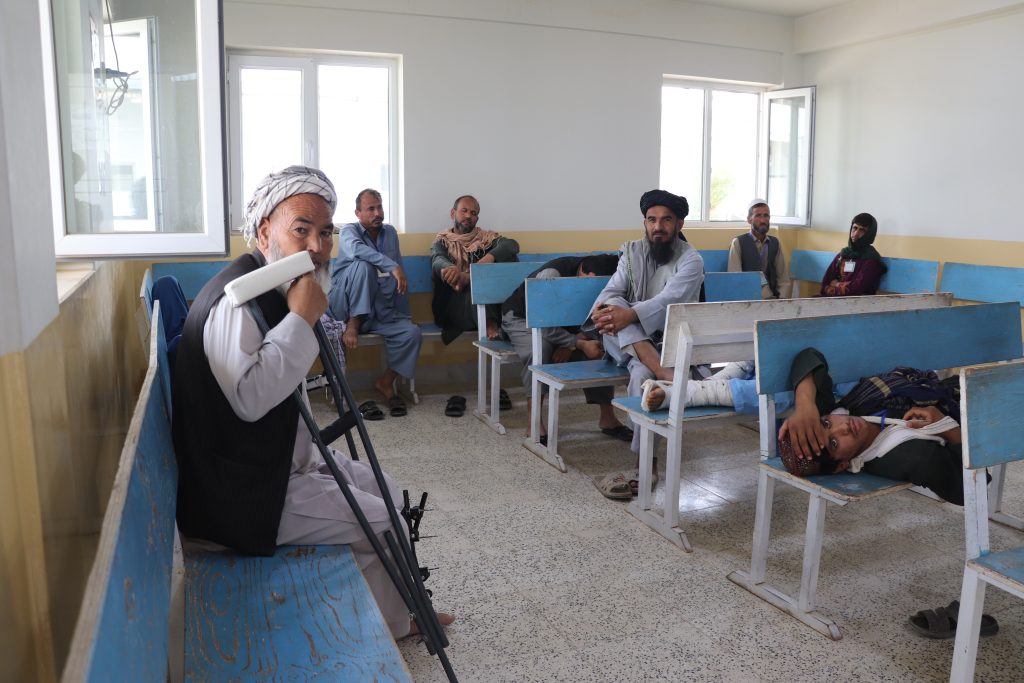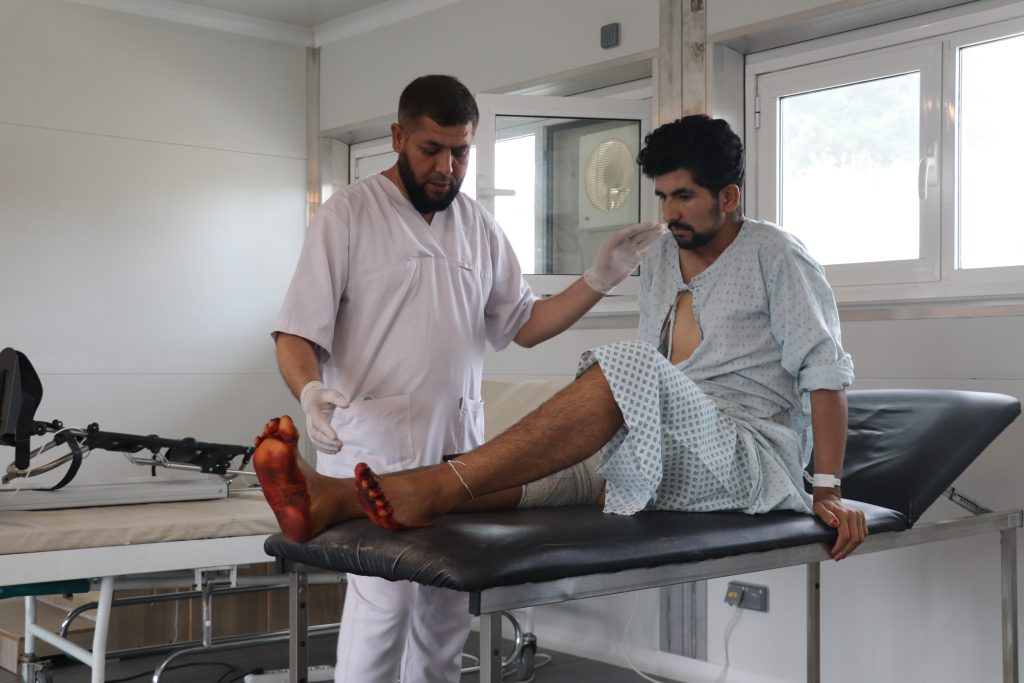Kunduz Province, Afghanistan- Shir Mohammad starts listing all the medical and non–medical devices that he and his team of technicians have built from scratch for the Kunduz Trauma Centre in northern Afghanistan.
These include crutches, walkers, and even a stretcher that reduces the noise and vibration for patients when they’re being transported through the hospital. And recently, a spica table that is used for patients with bone fractures to help align the bones when putting them in a cast.
The logistics team is kept busy, with 32,628 patients being seen in the emergency room and 23,217 outpatient consultations conducted by MSF medical teams in 2024.
Since 2023, the team has built an average of 20 to 30 pairs of crutches and walkers every week, using locally available materials. Then the crutches are given to the physiotherapists to distribute them for free to patients in need.
Not only has that provided free mobility aid devices essential for patients’ recoveries, but it’s also helped reduce MSF’s medical costs.
“Previously, we had a supplier from whom we’d purchase the crutches. But now the cost is significantly reduced. The crutches we build here in MSF are around 50 per cent less than the market price,” said Shir Mohammad.
With hundreds of crutches made locally in the last few years, Shir Mohammad says he often sees people in the community using those built by the MSF logistics department in Kunduz.



Mohammadullah said the physiotherapists gave him the crutches when he was discharged, instructing him to avoid putting pressure on the broken leg.
“In the market, crutches cost around 1,000 Afghani (roughly US$14). It’s good that MSF provides them for free, and we’ll return them to the hospital after recovery,” said Mohammadullah.
Shir Mohammad says it warms his heart when he creates something that helps patients and meets the needs of the medical team.
“One of our main objectives is to serve our patients and our people in any way we can. If we have the ability to help others, we must do it,” he said.
MSF has been operating a trauma centre in Kunduz province in northern Afghanistan since 2011. In 2015, the hospital was destroyed by a US airstrike on 3 October 2015. The new trauma centre opened on a different site in August 2021, providing comprehensive life– and limb-saving care for patients suffering from traumatic injuries, including those resulting from road traffic accidents, falls, gunshot wounds, unexploded ordnance, and others. In 2024, MSF medical teams saw 32,628 patients in the trauma centre’s emergency room, provided 23,217 outpatient consultations, and performed 4,742 surgical interventions.












